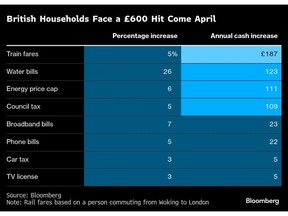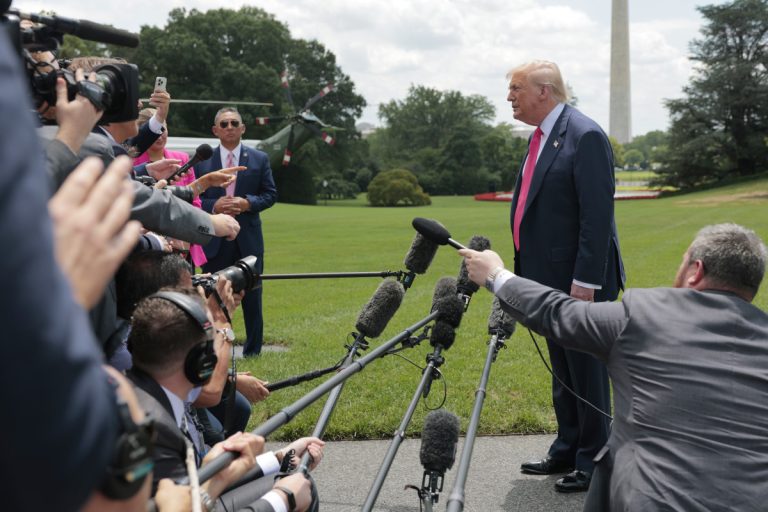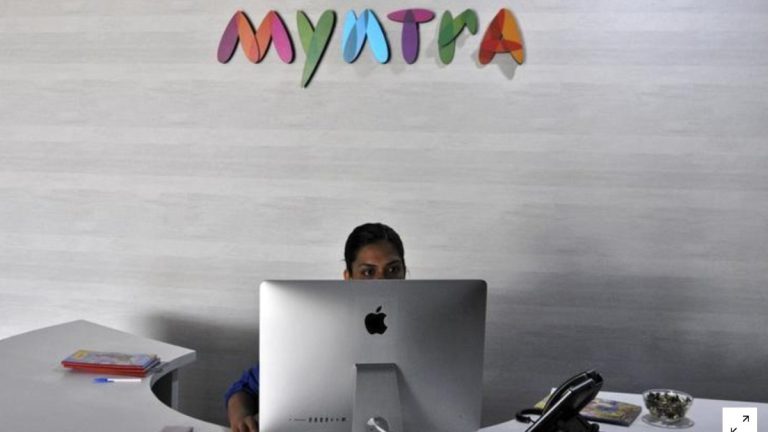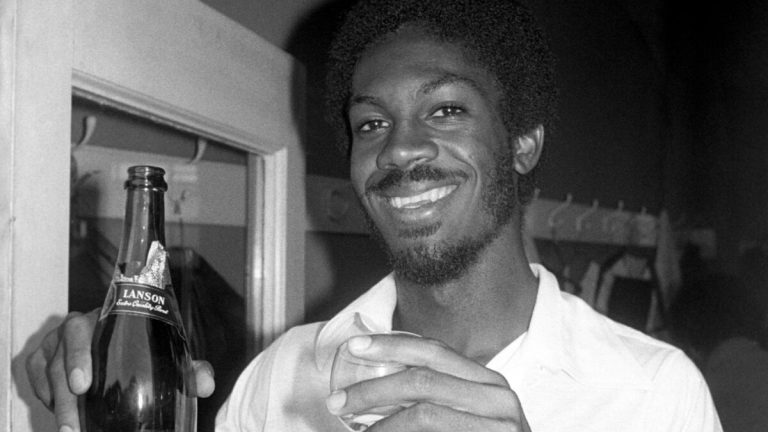Prime Minister Keir Starmer’s UK government insisted a boost to minimum wage rates will help Britons with the cost of living even as a slew of household bills rise.

Article content
(Bloomberg) — Prime Minister Keir Starmer’s UK government insisted a boost to minimum wage rates will help Britons with the cost of living even as a slew of household bills rise.
Article content
Article content
A 6.7% increase in the national living wage was implemented on Tuesday, handing eligible full-time workers £1,400 ($1,810) more per year. It “means we’re already giving hard working people more money in their pockets and a proper wage increase worth over twice the rate of inflation,” Deputy Prime Minister Angela Rayner in an emailed statement.
Advertisement 2
Article content
Nevertheless, the increase only provides some consolation for Britons who face a £600 rise in their annual households bills starting this month, according to calculations by Bloomberg. Typical water bills are due to rise 26% this financial year, while a price cap on energy bills increases by 6% on Tuesday. Most local authorities in England are planning to raise council tax by 5%.
The hikes threaten to deliver a further blow to the struggling UK economy by driving up inflation and leaving consumers with less disposable income. That risks reversing some early signs of green shoots which have suggested Britain may be emerging from stagnation. Moreover, employers face a double hit, with the wage rise coming in addition to an increase in National Insurance contributions on April 6 to 15% from 13.8%, representing a £26 billion tax rise.
Article content
Advertisement 3
Article content
The higher bills and coming tax rise for business have led tabloid newspapers in Britain to brand the month “Awful April,” heaping pressure on Starmer and Chancellor of the Exchequer Rachel Reeves, who is already facing dissent within the governing Labour Party over cuts to welfare and departmental spending.
The pressures on the economy are likely to worsen after the UK government appeared to give up hope of securing a carve-out from President Donald Trump’s tariffs before they are announced on Wednesday.
“It does appear that he perhaps wants to apply to every country in the world before he talks about individual negotiations with countries,” Business Secretary Jonathan Reynolds told Times Radio on Tuesday. Still, “if any country is able to reach an agreement with the US, I don’t believe there’s a country better placed than the UK,” he said.
Advertisement 4
Article content
An agreement between the US and UK on a deal improving trading relations, with a particular focus on the technology sector, is unlikely to be finalized for some weeks at best, according to a British official familiar with the matter.
Reynolds confirmed that Britain was talking to the US about changes to its digital services tax, which Bloomberg reported the UK was considering as a potential sweetener in order to strike a deal with Trump. “The delivery, the structure of that is something we can talk about,” he said.
Richard Hughes, chair of the Office for Budget Responsibility, warned last week that if Trump imposed 20% tariffs on the rest of the world it would reduce Britain’s economic output by 1% and see the £9.9 billion of headroom Reeves has against her budgetary rules evaporate, paving the way for tax rises at the autumn budget.
Article content







